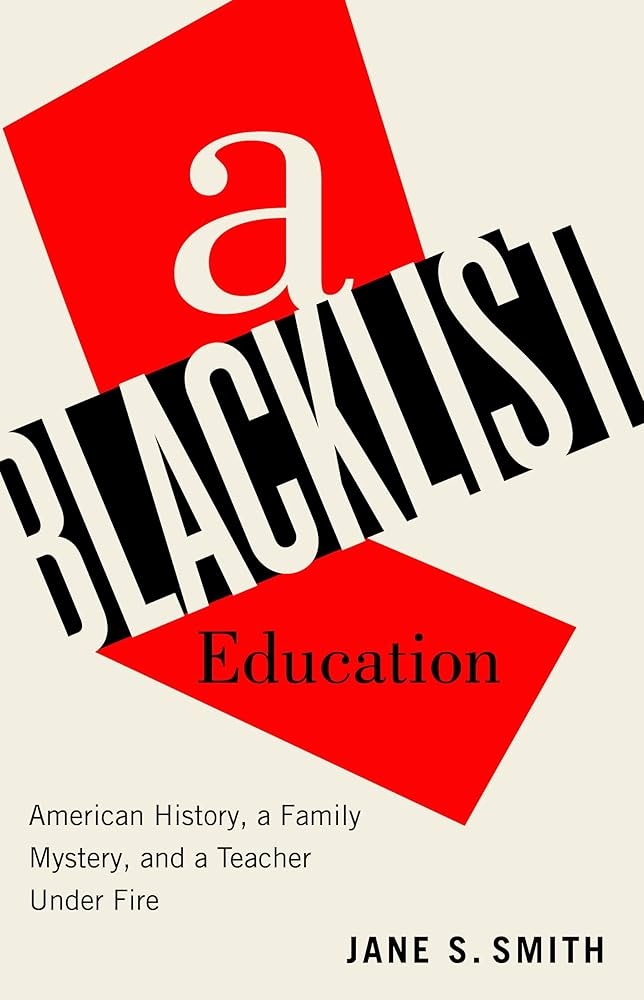A Blacklist Education is a short, powerful book about a hidden family story: the interrogation of Jane Smith’s father, Saul Schur, in the early 1950s for an alleged affiliation with the Communist Party. Starting from this very personal event, the book expands to consider how the New York City public school system, the largest in the country, became a target of conservative zealots, part of a pervasive national movement to suppress liberal voices.
A dedicated public school teacher, Schur was named as a communist by anonymous informers; he was one of many teachers who voluntarily left the school system in 1953 rather than have his family become the object of McCarthyite attention. His experience was never mentioned as Smith was growing up. It is only as an adult, while sorting through family papers after her mother’s death, that she encounters intriguing evidence of this hidden chapter in her father’s life. She finds a thick folder stuffed with photos, letters, newspaper clippings, and other documents that she can’t account for. Her father, a Boy Scout troop leader? A political activist? Accused of Communist Party membership? How had she never heard of any of this? Mystified, but with no one to ask for an explanation (her father predeceased her mother by many years, and her brothers don’t seem to know much), she launches an investigation of her own. This is the “education” of her title—her own search to understand the blacklist’s impact not only on her father but also, beyond that, on the politics of the city and the nation.
As she pored over the files of anticommunist investigations in the archives of the New York City Board of Education, Smith says, she “felt the past rush up to meet me in an assault of sensory memories.” The book makes sense of these childhood memories in the light of the history she is now learning. The combination of personal testimony and historical context makes for fascinating and moving reading. There is no other account like it in the many written histories of this period.
